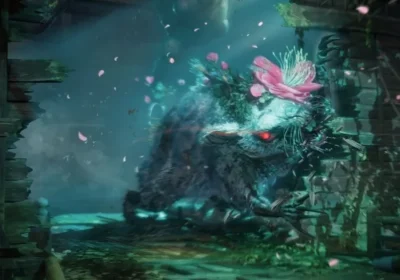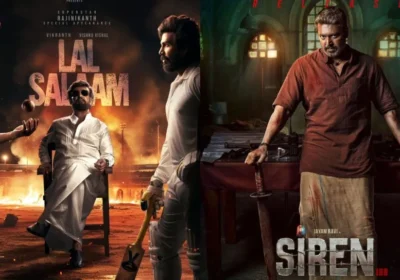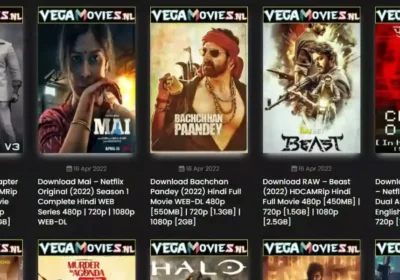Guts vs. Griffith: The Epic Conflict in Berserk Manga
Kentaro Miura’s “Berserk” is a dark fantasy manga renowned for its complex characters, intricate storytelling, and visceral battles. At the heart of this epic narrative lies one of the most compelling and emotionally charged conflicts in the world of manga – the clash between Guts and Griffith. This intense rivalry is central to the series, shaping the characters’ destinies and driving the overarching narrative. In this article, we will explore the epic conflict between Guts and Griffith in “Berserk,” examining its origins, development, and profound impact on the story.
The Beginning of Friendship
The story of Guts and Griffith begins with an unlikely friendship forged on the battlefield. Guts, a lone mercenary and formidable warrior, crosses paths with Griffith, the charismatic leader of the Band of the Hawk, during a battle. Griffith’s unwavering ambition and charisma draw Guts into the Band, where he becomes an essential member of the group.
The initial camaraderie between Guts and Griffith is a central element in the early chapters of “Berserk.” Griffith’s dream of attaining his own kingdom resonates with Guts, who finds a sense of purpose and belonging within the Band. The two men share a deep bond, with Guts considering Griffith both a comrade and a friend.
Ambition and Betrayal
As the story unfolds, Griffith’s ambition becomes increasingly apparent. He aspires to become a king and is willing to make immense sacrifices to achieve his dream. This ambition leads to a pivotal moment in the series when Griffith makes a Faustian bargain with the God Hand, a group of transcendental beings, in exchange for power.
Griffith’s betrayal of the Band of the Hawk, including Guts, is a shocking and traumatic event that marks a turning point in the series. He sacrifices his comrades’ lives in pursuit of his dream, leading to Guts’ deep sense of betrayal and abandonment.
The Eclipse
The ultimate culmination of Guts and Griffith’s conflict occurs during the Eclipse, a nightmarish ritual orchestrated by the God Hand. The Eclipse is a grotesque and brutal event in which the members of the Band of the Hawk are subjected to horrifying fates.
It is during the Eclipse that Guts witnesses the true extent of Griffith’s transformation and the depth of his betrayal. Griffith is reborn as Femto, a member of the God Hand, and commits unspeakable acts, including violating Casca, Guts’ beloved companion.
The Eclipse serves as a pivotal moment in “Berserk,” solidifying the irreparable rift between Guts and Griffith and propelling Guts on his quest for vengeance.
The Struggle for Vengeance
Following the Eclipse, Guts’ primary motivation becomes seeking revenge against Griffith for his betrayal and the atrocities committed during the Eclipse. This quest for vengeance drives much of the series’ narrative, as Guts confronts formidable adversaries, battles demonic apostles, and seeks to confront Griffith.
Guts’ journey is marked by his unwavering determination to confront Griffith, who now occupies a position of immense power and authority within the world of “Berserk.” The conflict between the two former comrades becomes the central driving force of the series, adding layers of complexity and emotion to the story.
The Eclipse’s Impact on Casca
Casca, another central character in “Berserk” and Guts’ beloved companion, is deeply affected by the Eclipse and Griffith’s transformation. She is left mentally shattered, unable to speak or care for herself, and becomes dependent on Guts for protection and care.
Casca’s condition adds a layer of emotional depth to the conflict between Guts and Griffith. Guts’ desire for vengeance is not only driven by his personal betrayal but also by his determination to restore Casca to her former self.
The Guts vs. Griffith Conflict: Themes and Symbolism
The conflict between Guts and Griffith in “Berserk” is laden with themes and symbolism that resonate throughout the series:
- Betrayal: The profound sense of betrayal that Guts experiences at Griffith’s hands is a central theme. It explores the consequences of betrayal, the impact it has on relationships, and the lengths one is willing to go for revenge.
- Ambition: Griffith’s unyielding ambition serves as a cautionary tale about the corrupting nature of power and the sacrifices one may make to achieve their dreams.
- Sacrifice: The Eclipse, with its gruesome sacrifices, serves as a symbol of the characters’ willingness to sacrifice for their desires. It highlights the moral and emotional costs of such sacrifices.
- Vengeance: Guts’ relentless pursuit of vengeance reflects the theme of justice and the question of whether revenge can bring closure and healing.
The Emotional Core of “Berserk”
The conflict between Guts and Griffith is the emotional core of “Berserk.” It elicits a range of emotions from readers, from sympathy for Guts’ suffering to complex feelings about Griffith’s transformation.
Guts’ journey is one of resilience and determination, as he battles against insurmountable odds in his quest for revenge. His character development and his struggle with inner demons make him a compelling and relatable protagonist.
On the other hand, Griffith’s transformation into Femto raises questions about the nature of evil, the consequences of ambition, and the loss of humanity. His character serves as a morally ambiguous and enigmatic figure, challenging readers’ perceptions and invoking complex emotions.
Conclusion
The epic conflict between Guts and Griffith in “Berserk” is a powerful and emotionally charged narrative thread that defines the series. It explores themes of betrayal, ambition, sacrifice, and vengeance, creating a complex and morally nuanced story. The conflict serves as the driving force behind the characters’ actions and decisions, propelling them into a world of violence, despair, and relentless ambition.
As “Berserk” continues to captivate readers and inspire creators, the conflict between Guts and Griffith remains a testament to Kentaro Miura’s storytelling prowess and his ability to craft a narrative that resonates on emotional and philosophical levels. In the dark and tumultuous world of “Berserk,” the clash between these two complex characters stands as an enduring and iconic tale of tragedy and revenge.










